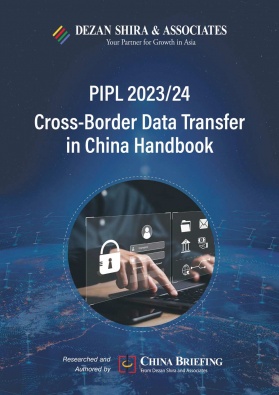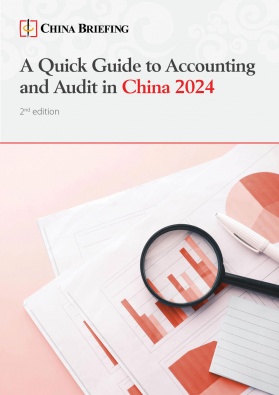China Monthly Tax Brief: March 2024
In this monthly China Tax Brief for March, we highlight key developments in the realm of taxation for both business and individual taxpayers. The 2024 Catalogue of Encouraged Industries in Hainan FTP offers precise directives for businesses, while Jiangsu Province actively encourages multinational corporations to establish regional headquarters and functional institutions. Additionally, multiple government departments have collaboratively released comprehensive guidelines to bolster technological innovation. Lastly, the State Administration of Taxation (STA) emphasizes accurate reporting during the annual Individual Income Tax (IIT) settlement to avoid legal repercussions.
2024 Catalogue of Encouraged Industries in Hainan FTP released, providing clear guidance for businesses
On February 23, 2024, the National Development and Reform Commission (NDRC), the Ministry of Finance (MOF), and the State Taxation Administration (STA) jointly released the revised Catalogue of Encouraged Industries in Hainan Free Trade Port (2024 Version), which came into effect on March 1, 2024.
The 2024 Hainan Encouraged Catalogue builds upon the 2020 version by retaining the encouraged industries from existing national catalogues, such as the Catalogue for Guiding Industry Restructuring and the Catalogue of Encouraged Industries for Foreign Investment while further revising and improving the regional encouraged catalogue based on actual situation and demands in Hainan.
The Hainan regional encouraged catalog covers a total of 14 categories of sectors and 176 entries, with an addition of 33 new entries compared with the 2020 version. The new entries mainly involve culture and tourism, new energy, healthcare, aerospace, and ecological protection, among others.
Compared to the previous version, the 2024 Catalogue further refines and enhances the regional catalog based on its implementation and the actual demands in Hainan. The focus areas include tourism, modern services, high technologies, and other key industries. In total, there are 14 categories spanning 176 entries, with 33 new entries added. These new entries primarily cover fields related to culture and tourism, new energy, healthcare, aerospace, ecological protection, and more.
Enterprises that (a) are registered in Hainan FTP; (b) have “substantive operations” in Hainan; and (c) with their main business in the encouraged industries in Hainan are eligible for a reduced corporate income tax (CIT) rate of 15 percent from January 1, 2020, to December 31, 2024.
Other preferential tax policies offered in Hainan:
- Enterprises of tourism, modern service, and high-tech sectors registered in Hainan FTP are exempt from paying CIT on income from new overseas direct investment between January 1, 2020 and December 31, 2024.
- Hainan-registered enterprises are allowed to accelerate the pre-tax deduction of the cost of fixed assets (excluding building) or intangible assets that are acquired between January 1, 2020 and December 31, 2024.
- Qualified high-end and urgently needed talents working at Hainan FTP can enjoy a partial individual income tax (IIT) exemption. That is, the portion of the IIT exceeding 15 percent of their taxable income can be exempt during the period from January 1, 2020 to December 31, 2024.
- Encouraged industrial enterprises producing goods originating from Hainan that do not contain imported materials or contain imported materials but with added value exceeding 30 percent after processing of imported intermediary products in Hainan are exempt from import tariffs when entering the rest of China.
Insights from Dezan Shira & Associates
The 2024 Hainan Encouraged Catalog serves as a crucial reference for guiding the direction of industrial development in the Hainan FTP and implementing favorable policies, including CIT incentives. Enterprises should closely monitor national policy developments, especially the relevant policies specific to the Hainan FTP, in order to grasp industry trends and policy preferential opportunities.
During the implementation process, if any ambiguities arise, the Hainan Provincial Taxation and other relevant departments will be responsible for determining whether an enterprise’s main business falls within the encouraged industries. Enterprises should understand and adhere to the implementation rules, ensuring that their primary business aligns with the requirements. In cases of judgment difficulties, timely communication with tax authorities and other relevant departments is essential to avoid risks arising from non-compliance with regulations.
Jiangsu Province encourages multinational corporations to establish regional headquarters and functional institutions
In order to accelerate high-level opening-up, attract and utilize foreign investment more effectively, and incentivize multinational companies to set up regional headquarters and functional institutions in Jiangsu Province, China, the Jiangsu Provincial Department of Commerce and the Jiangsu Provincial Department of Finance jointly issued the Guiding Opinions on Promoting the Establishment of Regional Headquarters and Functional Institutions by Multinational Corporations in Jiangsu Province (2024 Edition) (“Opinions”). This document will be effective from April 1, 2024, until December 31, 2026.
According to the Opinions, regional headquarters and functional institutions that are registered in Jiangsu Province and meet specific criteria will be eligible for a range of convenient measures and incentives, including but not limited to:
- Simplified administrative procedures for establishment and operation
- Financial support for certain activities
- Talent recruitment and training assistance
- Access to preferential policies related to land use, taxation, and financing
This initiative aims to promote investment, enhance economic development, and create a favorable business environment for multinational corporations in Jiangsu Province.
To be more specific, the preferential policies offered by Jiangsu province to regional headquarters and functional institutions are summarized in the following table:
| Preferential Policies Offered by Jiangsu Province to Regional Headquarters and Functional Institutions | ||
| Facilitation measures | Provide various entry and exit conveniences for regional headquarters and functional institutions of multinational corporations, including emergency entry, temporary entry, long-term residence, and permanent residence. | |
| Simplify work permit procedures for foreign high-end talents employed by regional headquarters and functional institutions, including direct issuance of work permits with a maximum duration of 5 years, as well as streamlined processes for other foreign employees. | ||
| Offer educational conveniences for the children of senior management personnel in regional headquarters and functional institutions, such as facilitating enrollment in schools for foreign nationals’ children or attending local schools as international students. | ||
| Implement trade facilitation measures for regional headquarters and functional institutions, including support for tariff guarantee insurance pilot programs and the possibility of being classified as Class I or Class II export tax refund (exemption) enterprises based on specific conditions. | ||
| Provide cross-border settlement and investment facilitation measures for regional headquarters and functional institutions, such as centralized cross-border fund management and foreign exchange transactions. | ||
Offer tax facilitation services for regional headquarters and functional institutions:
|
||
| Financial support | Newly recognized regional headquarters and functional institutions of multinational corporations in Jiangsu Province are eligible for operational subsidies of up to RMB 6 million and RMB 2 million, distributed over three years. | |
Insights from Dezan Shira & Associates
The Jiangsu Provincial Government places significant emphasis on attracting and utilizing foreign investment, particularly in establishing regional headquarters and functional institutions for multinational corporations within the province. The policy document outlines a series of measures aimed at creating a facilitative environment. These measures cover various aspects, including entry and residence, work permits, education for children, trade facilitation, cross-border settlements, investment and financing convenience, and tax services. The objective is to attract more multinational companies to invest in Jiangsu, thereby promoting economic development and enhancing the province’s global competitiveness.
Furthermore, the financial support provided in the Opinions will further encourage multinational corporations to enhance their investment efforts in Jiangsu. Newly recognized regional headquarters and functional institutions of multinational companies are eligible for operational subsidies, while enterprises that increase capital and expand capacity receive incentives.
Multiple departments jointly release guidelines on major tax and fee incentives to support technological innovation
On March 12, 2024, the MOF, in collaboration with the Ministry of Science and Technology (MOST), the General Administration of Customs (GACC), and the STA, jointly released the Guidelines on Major Tax and Fee Incentives to Support Technological Innovation in China (“Guidelines”). The purpose of these Guidelines is to simplify the process of accessing and applying tax and fee policies related to technological innovation, ensuring that the policy benefits effectively reach innovative entities.
The Guidelines classify tax and fee incentives according to different stages of technological innovation activities, including venture capital investment, research and experimental development, technology transfer, development of key industries, and the entire industry chain.
Under each category, the Guidelines provide detailed information on relevant tax and fee incentives, including policy types, applicable tax categories, incentive content, eligible entities, application conditions, reporting deadlines, application methods, required documentation, and legal basis. To facilitate the application for innovative entities, the Guidelines also include a matrix table of relevant tax and fee incentives, offering a one-stop and menu-style service to ensure that these incentives are fully accessible and utilized.
For more information about China’s policy to support technology innovation, please read our China Briefing Article: What Are the Tax Incentives in China to Encourage Technology Innovation?
STA issued a risk reminder for the annual IIT final settlement
Annual IIT reconciliation (also referred to as annual IIT settlement) for the year 2023 is ongoing. Starting from March 21, taxpayers can make the final tax settlement directly without requiring a prior appointment.
On March 13, the STA released a reminder warning potential about potential risks that individual taxpayers may encounter during the annual IIT settlement, summarized as follows:
|
Risk Reminder for the Annual IIT Final Settlement |
|
| Typical risk areas | Precautions |
| Personal information security |
|
| Accuracy of refunds |
|
| Understanding tax law and policies |
|
| Honest declaration |
|
| Timely settlement |
|
| Legal responsibility |
|
Other tax updates
In addition to the developments introduced above, some other noticeable updates include:
- According to adjustments in import and export tariff codes, the STA has compiled the 2024-A version of the Export Tax Rebate Rate Library.
- Starting on March 1, 2024, the Hengqin Guangdong-Macao In-Depth Cooperation Zone officially closes its borders. With the commencement of border closure, the import and export tax policies specific to the cooperation zone, as well as personal luggage and postal item tax policies, are now in effect.
- On March 1, the Implementing Rules for the Administrative Measures for Invoices came into effect.
- Starting from March 1, 2024, Shanghai cut the contribution rate for pension insurance payments by flexible employment personnel from 24 percent to 20 percent. This reduction in pension insurance fees does not impact individual pension benefits, and the proportion credited to the individual pension account remains at 8 percent of the payment base.
Also read:
The information provided is for general purposes only and may not account for local variations. No liability is assumed for the completeness or accuracy of the information. For personalized advice on specific business queries, consult our experts at Dezan Shira & Associates by emailing China@dezshira.com.
About Us
China Briefing is one of five regional Asia Briefing publications, supported by Dezan Shira & Associates. For a complimentary subscription to China Briefing’s content products, please click here.
Dezan Shira & Associates assists foreign investors into China and has done so since 1992 through offices in Beijing, Tianjin, Dalian, Qingdao, Shanghai, Hangzhou, Ningbo, Suzhou, Guangzhou, Dongguan, Haikou, Zhongshan, Shenzhen, and Hong Kong. We also have offices in Vietnam, Indonesia, Singapore, United States, Germany, Italy, India, and Dubai (UAE) and partner firms assisting foreign investors in The Philippines, Malaysia, Thailand, Bangladesh, and Australia. For assistance in China, please contact the firm at china@dezshira.com or visit our website at www.dezshira.com.
- Previous Article China Expands Market Access in Cross-Border Services with Release of New Negative Lists
- Next Article China Releases Technical Standards Guiding the Classification of “Important” Data








